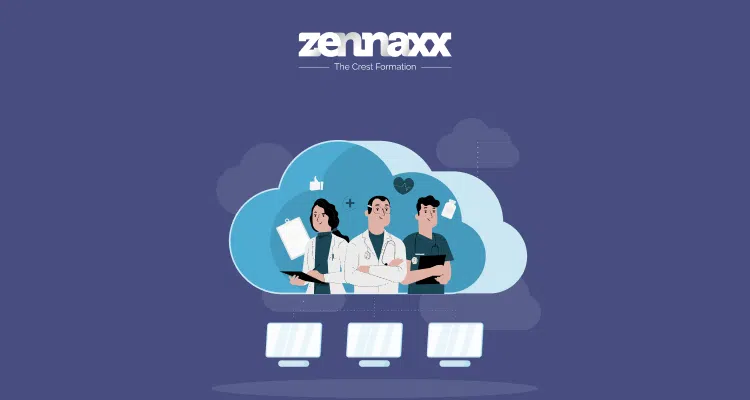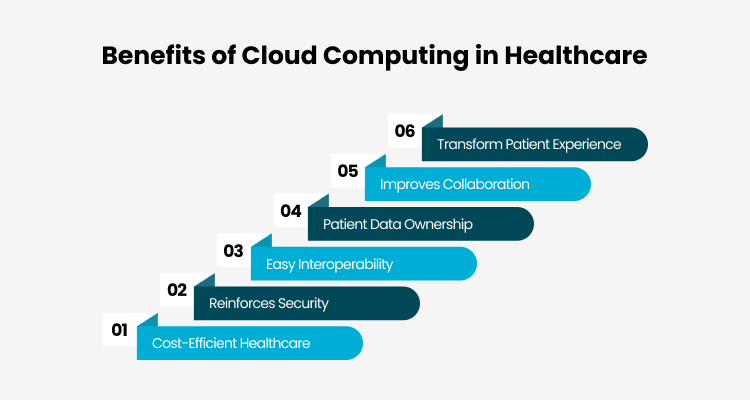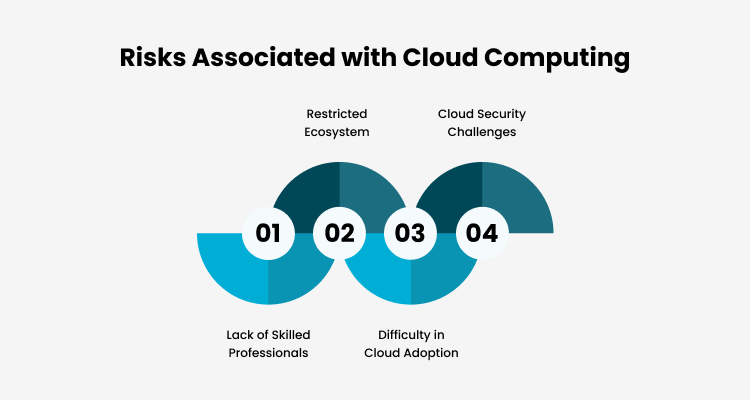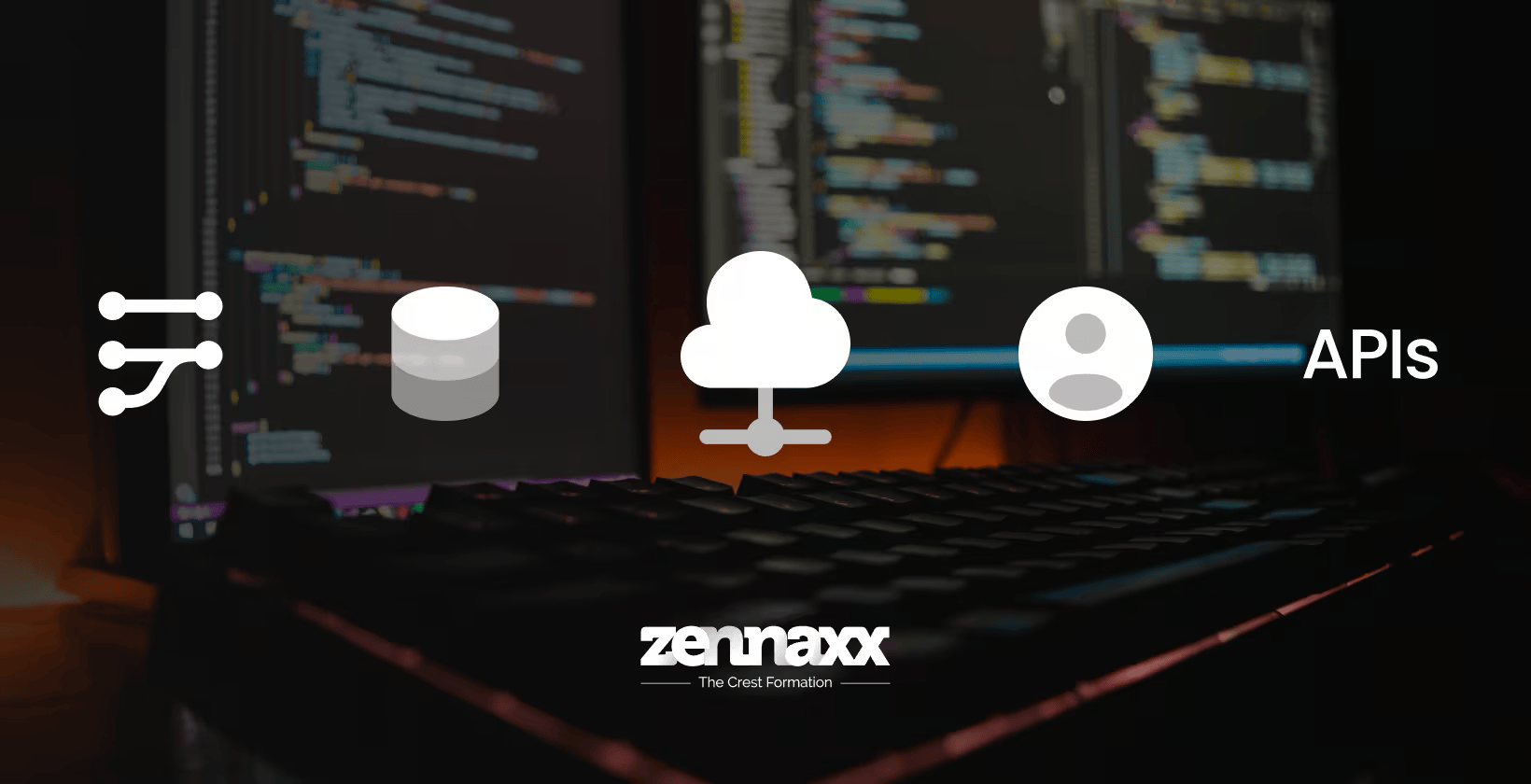This is the primary reason behind a surge in cloud usage for healthcare applications. According to Skyhigh’s “Security Cloud Adoption Report—Healthcare Edition,” public cloud service usage in healthcare applications increased by 25% between 2019 and 2022.

What is Cloud Computing in Healthcare?

Such partnerships between tech giants to boost cloud computing applications for the healthcare industry clearly show how important it is for significant businesses.
But that’s not all!
What are the Benefits of Cloud Computing in Healthcare?

1. Cost-Efficient Healthcare
This helps them save big on ideal resources they don’t need. Plus, the security of patient data that cloud computing offers becomes crucial when a single data breach can cost up to $10.93 million.
2. Reinforces Security
So, how does cloud computing help ensure compliance?
3. Easy Interoperability
When you use cloud-based EHR, the entire operation burden is shifted to the Software as a Service(SaaS) service. This means you will have better resource efficiency.
4. Patient Data Ownership
5. Improves Collaboration
Healthcare businesses can leverage cloud services to build custom features that allow surgeons and doctors to have one-on-one video calls during significant surgeries.
Such features improve collaborations, and integrating innovations like AI into these features can enhance operational capability.
6. Transform Patient Experience
Planning to develop Healthcare software?
Contact us today and let our team of experienced professionals transform your vision into an innovative and user-friendly app that stands out in the market!
Types of Cloud Computing in Healthcare
1. Cloud Services By Deployment For Healthcare Industry
1.1 Public Cloud
1.2 Private Cloud
1.3 Hybrid Cloud
1.4 Multi-Cloud
These types of cloud services allow healthcare businesses to leverage models based on types of workloads.
2. Cloud Services By Distribution For the Healthcare Industry
2.1 Infrastructure as a Service (IaaS)
2.2 Platform as a Service (PaaS)
2.3 Software as a Service (SaaS)
Cloud service models provide complete Software over the Internet on a subscription basis.
So, healthcare companies don’t need to develop their Software from scratch. “Best part”– the cloud service provider handles everything from updates to infrastructure and maintenance.
Risks Associated with Cloud Computing in Healthcare
Cloud computing services involve risks when deploying healthcare apps, such as a lack of skills, a restricted ecosystem, resistance to adoption, and security.

1. Lack of Skilled Professionals
According to a report, 72% of midsize companies are struggling with cloud adoption due to a lack of skilled professionals.
2. Restricted Ecosystem
So, scaling the service should be fine if you integrate IoT services with your healthcare software to track patient vitals in real time.
3. Difficulty in Cloud Adoption
Another major obstacle to cloud adoption is the lack of compatibility with cloud services. Yes, most legacy systems have compatibility issues, so you need to consider modernization
4. Cloud Security Challenges
- Deploy encryptions to ensure data protection
- Ensure you have a role-based access policy across the application
- Use web application firewalls to ensure data security
- Leverage IAM in the cloud for data access control
Real-World Examples of Cloud Computing in Healthcare
1. GHX
GHX is a cloud-based supply chain network that helps several healthcare organizations worldwide with the automation of supply chain processes.
2. Medable
Medable uses cloud services to support clinical applications and storage of personal health information for healthcare providers.
3. Pfizer
Pfizer has used cloud services for healthcare applications since 2016. It leverages cloud platforms to manage and monitor drug research processes, which include trial creation, data collection, cleansing, and submissions.
Want to Automate Your Business Process With a Software Solution?
Zennaxx, a leading software development firm in Canada, has delivered 700+ bespoke solutions spanning various industries.
What is the Future of Cloud Computing in Healthcare?
NVIDIA’s investment into Recuinn’s drug discovery empowering their research with generative AI capabilities is a classic example of increasing innovations in the field of e industry.
How Can Zennaxx Help Adopt Cloud Computing in Healthcare?
Healthcare app development service providers like Zennaxx can transform the way you integrate innovations like AI and cloud adoption.
With 100+ years of cloud project experience, Zennaxx has been at the forefront of providing custom solutions leveraging cloud computing in healthcare.
Get an estimate today on how much it will cost to adopt cloud computing in your healthcare system.


